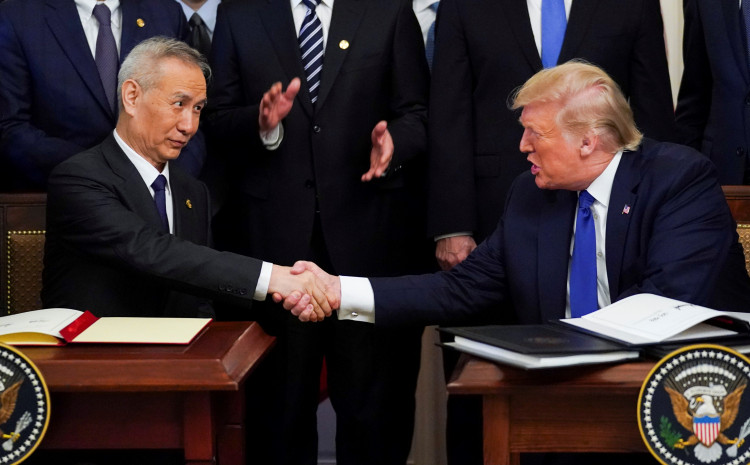China and the United States signed "phase one" of their trade deal on Wednesday, with the world's second-largest economy agreeing to purchase an additional $200 billion worth of American products within the next two years.
According to CNBC, the additional purchases do not include the number of purchases over the past years. Instead, the purchase of $200 billion in U.S. goods will be done in installments.
For 2020, China will make $77 billion in additional purchases of both goods and services. Next year, Beijing will purchase $123 billion worth of products to complete the total amount agreed on as part of the China-U.S. Phase one trade deal.
In detail, Chinese importers will purchase $32.9 billion of manufactured products this year and $44.8 billion next year. In the agricultural sector, China will make $12.5 billion in purchases this year and $19.5 billion in 2021.
For the services sector, a total of $12.8 billion will be made this year and $25.1 billion will be purchased in 2021. Finally, a total of $18.5 billion in energy products will be completed in 2020 and $33.9 billion will be allotted for 2021.
The products in various sectors include but are not limited to: nuclear reactors, methanol, soybeans, data hosting services, liquified natural gas (LNG), flour, coal, telecom services, radar parts, wheat, financial services, petroleum oil, insulated wire, and more.
Other agricultural goods include honey, corn, jam products, jellies, swine meat, bovine meat, and horses. As for the manufactured goods segment, China also committed to increasing purchases of steel and iron products, hair clippers, and refrigerators.
CNN reported that the China-U.S. Phase one trade deal is composed of 86 pages in total. After the agreement's signing, U.S. President Donald Trump said he will visit Beijing sometime in the "not too distant future" to express his goodwill for the latest development.
While Chinese President Xi Jinping did not travel to Washington in person for the deal's signing, he sent a letter to Trump, stating that the two economic giants have just proven they can set aside their differences for the greater good of each country.
Xi also noted in his letter to his American counterpart that he is hoping the U.S. will implement equal treatment to Chinese companies, seemingly touching on the White House's continuous pursuit of banning Chinese tech giant Huawei from 5G network projects.
For its part in the phase one signing, the U.S. pledged to reduce tax duties on several Chinese goods, the South China Morning Post reported. The agreement was signed in front of American lawmakers, cabinet officials, media members, business leaders, and Chinese officials.
The signing has been interpreted by economists as a good step moving forward in the efforts of the two economic powerhouses to ease trade tensions that have affected the global economy over the past two years.





